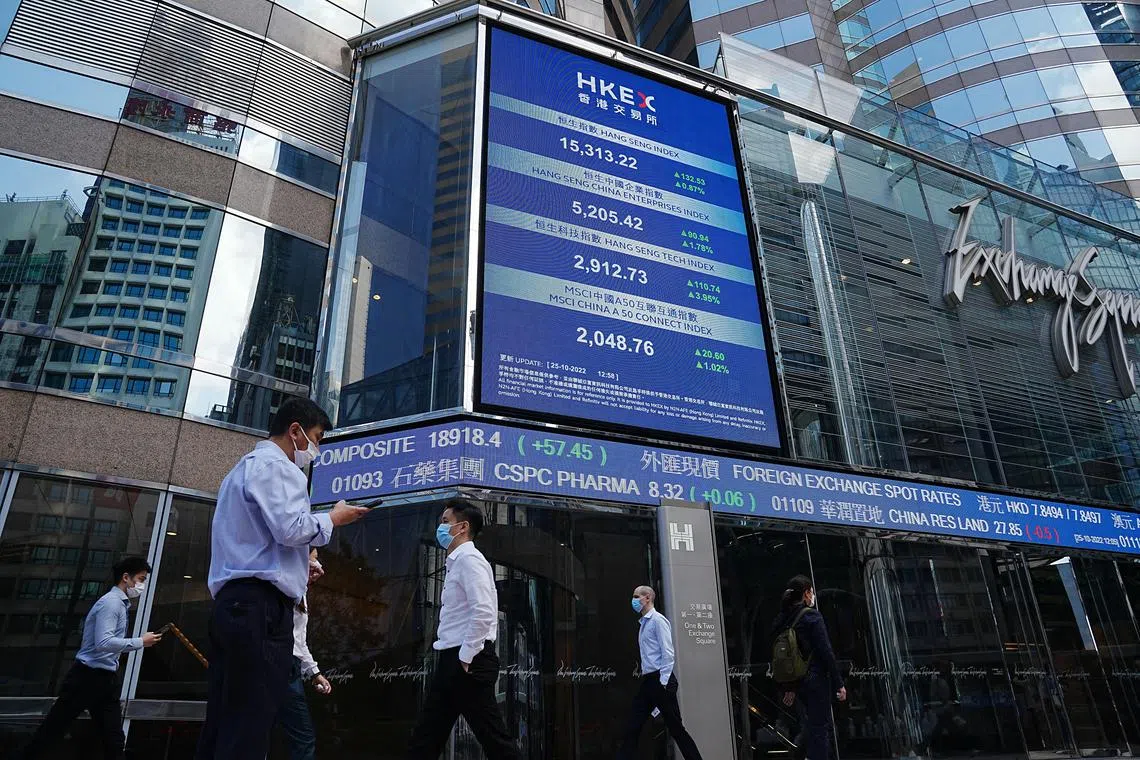China tech stocks winning back investors after awful year
Sign up now: Get ST's newsletters delivered to your inbox

The c has surged about 50 per cent since an October trough.
PHOTO: REUTERS
Hong Kong – After a rout that rivalled the bursting of the United States dot.com bubble, things are looking better for Chinese technology stocks in 2023 as regulatory headwinds ease and earnings prospects improve.
The sector, once dubbed “uninvestable”, has regained favour among Wall Street analysts and investors
The Hang Seng Tech Index has surged about 50 per cent since an October trough,
“Investor focus could return to fundamentals with the regulatory overhang gradually removed,” Mr Mark Haefele, chief investment officer for UBS Global Wealth Management, wrote in a note this week. “China’s Internet platform names are key beneficiaries of the country’s move towards an eventual reopening. We see further upside for the sector.”
The Chinese authorities’ stance has also shifted to become more supportive
The forward earnings estimate for e-commerce company Alibaba Group Holding has increased 21 per cent from a May low, while estimates for mobile gaming giant Tencent Holdings have recovered by around 8 per cent since August.
“For a lot of the Internet companies, what we are seeing is that they have been very early in cutting costs, so their cash flow does look better,” Ms Wendy Liu, chief Asia and China equity strategist at JPMorgan said in an interview earlier in December. “At the same time, the top line is also benefiting to some degree from reopening.”
Take JD.com. The e-commerce firm is slashing salaries for about 2,000 managers by 10 per cent to 20 per cent, joining a wave of job and cost reductions worldwide by Big Tech.
In the year ahead, investors will be seeking further signs that the crackdown is done and dusted. A key indicator would be the revival of Ant Group’s initial public offering.
Morgan Stanley, which upgraded Chinese stocks to overweight in early December, expects consumer and Internet platform firms to lead the market’s return-on-equity recovery.
Yet, even with the recent rally, the Hang Seng Tech gauge remains about 60 per cent below its February 2021 peak.
Chinese President Xi Jinping’s “common prosperity” agenda – the cornerstone of the campaign that includes curbing the influence of powerful tech companies – also continues to weigh on growth plans.
“There’s a cautiously positive outlook, I would say, for next year,” said Natixis Investment Managers’ global head of market strategy Mabrouk Chetouane. “The underlying message... is that these tech companies are allowed to make money, but are not allowed to aggressively make money.” BLOOMBERG


